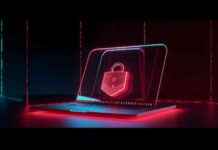Remote learning has become the norm in schools across the US, especially after the Covid-19 pandemic forced closures nationwide. However, what many parents may not realize is that along with this shift to online education came the widespread use of student surveillance technologies. These tools, initially marketed as a way to enhance remote learning, have now raised concerns about student privacy and the potential intrusion into our children’s minds.
The EdTech surveillance industry, valued at a staggering $3 billion, has capitalized on the pandemic by promoting their products as essential for preventing student violence and suicide. Companies like Gaggle, GoGuardian, Securly, and Navigate360 now have access to students’ digital lives, monitoring everything from private texts and emails to social media posts and web searches. This means that schools not only have insight into academic performance but also into students’ personal thoughts, conversations, and mistakes.
As a parent of two public school students, the implications of this constant surveillance are troubling. Children are learning that nothing they do online is truly private, leading to a culture of self-censorship and fear of expressing unpopular opinions or ideas. The normalization of spying in schools is shaping a generation of kids who are constantly aware of being watched, reminiscent of George Orwell’s dystopian novel, “1984.” This level of surveillance not only infringes on students’ privacy but also stifles creativity and critical thinking, crucial skills for their future success.
Despite the warnings provided by past incidents like the Lower Merion webcam scandal, schools continue to invest billions in unproven student surveillance products. It is essential for parents to take action and demand transparency from schools before implementing such technologies. By asking questions about the effectiveness, potential harms, and alternatives to surveillance products, parents can push for more responsible decision-making in schools. Ultimately, it is crucial to prioritize student safety without compromising their privacy and intellectual freedom.



